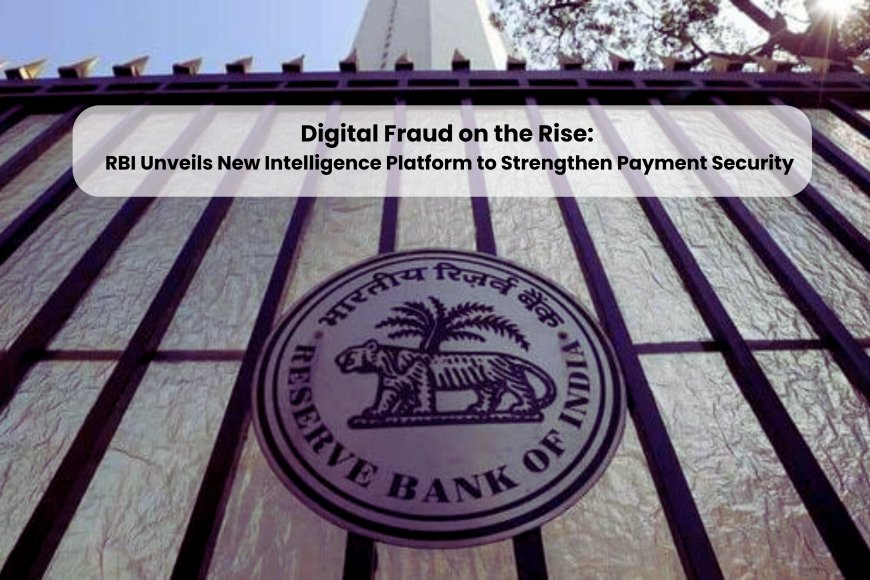Digital Fraud on the Rise: RBI Unveils New Intelligence Platform to Strengthen Payment Security
To combat rising digital payment frauds, RBI is launching the Digital Payment Intelligence Platform for real-time fraud detection, data sharing, and collaborative threat response across banks.

The Reserve Bank of India (RBI) and several public and private banks are working harder to make things safer as digital payment scams rise at an alarming rate.The RBI is working on a big project known as the Digital Payment Intelligence Platform (DPIP).This is a centralized fraud detection system that will be able to monitor and stop digital scams in real time. As a high-priority "Digital Public Infrastructure (DPI)" initiative, the platform is planned to go live in the next few months.
DPIP is being designed as a mechanism for sharing information that will gather and study transaction data from all banks.Its main strength is that it can quickly find patterns of fraud and suspicious behaviour using AI and ML.The idea is to find fraud early so that banks can take action before the money is lost.
The Reserve Bank Innovation Hub (RBIH) is working on a prototype right now with the help of 5 to 10 banks.A recent high-level conference between RBI officials and bank executives set the project's institutional framework in stone. It also showed how important it is to deal with financial fraud on a systemic level.
Recent RBI data showed that bank frauds almost tripled in FY25, going from ₹12,230 crore the year before to ₹36,014 crore.This made it obvious that a solution was needed.Public sector banks were the most affected by loan-related frauds, whereas private banks faced more frauds in transactions made over the internet and using cards.These numbers showed that the security solutions we have now are not enough for the digital world we live in.
Telecom companies like Airtel are also helping by getting in touch with more than 40 banks and other government organisations to establish a shared list of fake websites.This would help stop fraudulent domains before they take place.Experts are also pushing for stricter rules for messaging applications that scammers typically utilise and for more people to be cautious of internet scams.
The DPIP project could change the way digital payments work in India for the better.It promises to not only cut down on financial losses but also promote trust in digital transactions by bringing banks together and allowing fraud detection in real time.This is a huge step towards making the digital economy safer, smarter, and more stable.
This article is based on information from Economics Times







